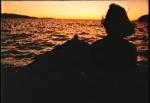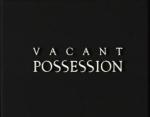AustLit
The material on this page is available to AustLit subscribers. If you are a subscriber or are from a subscribing organisation, please log in to gain full access. To explore options for subscribing to this unique teaching, research, and publishing resource for Australian culture and storytelling, please contact us or find out more.
Latest Issues
AbstractHistoryArchive Description
A film about memory, the narrative relates a young woman's return, after many years, to her family's weather-beaten home on the shores of Botany Bay. With the recent death of her mother creating additional resonance, the woman's personal memories are collapsed into collective ones. The film is also the story of the house, the land, and two families (one white, one Aboriginal) who both live in the shadow of the past.
Publication Details of Only Known VersionEarliest 2 Known Versions of
Works about this Work
-
Reconciliation and the History Wars in Australian Cinema
2012
single work
criticism
— Appears in: Exhuming Passions : The Pressure of the Past in Ireland and Australia 2012; (p. 207-222) 'When The Proposition ( a UK/Australia co-production, directed by John Hillcoat and scripted by Nick Cave) was released in 2005, film reviewers had no qualms about claiming this spectacular saga of colonial violence on the Queensland frontier as a 'history' film. A reviewer on BBC Radio 4 described The Proposition as 'a bushranger Western...set in violent 1880s Australian outback exposing the bitter racial tensions between English and Irish settlers. A Sunday Times review declared that 'Australia's brutal post-colonial history is stripped of all the lies in a bloody clash of cultures between the British police, the Irish bushrangers and the Aborigines.' Foregrounding the film's revisionist spectacle of colonial violence, an Australian reviewer predicted that, despite 'scenes of throat-cutting torture, rape and exploding heads...The Proposition could be the most accurate look at our national history yet'. (Author's introduction, 207)
-
Coming from the City in the Castle, Vacant Possession, Strange Planet and Radiance
2004
single work
criticism
— Appears in: Australian Cinema after Mabo 2004; (p. 112-130) In this chapter, Collins and Davis analyse how emergent themes within contemporary Australian cultural studies, repudiate 'the 19th century bush as the template for a British-derived national identity, turning instead to the cosmopolitan city , the multi-cultural suburbs, and the hedonistic holiday coast as templates for the a dynamic, post-national, post-multi-cultural identity in the 21st century.' The authors argue that 'the problem of belonging and of being at home in Australia is evident in the afterwardness of the history wars that followed the Mabo decision.' Source : Australian Cinema after Mabo (2004). -
Bringing the Ancestors Home
2000
single work
criticism
— Appears in: Twin Peeks : Australian and New Zealand Feature Films 2000; (p. 107-118) -
y
 'Vacant Possession'
1998
Perth
:
Centre for Research in Culture and Communication (Murdoch University)
,
1998
Z1687422
1998
single work
criticism
Research undertaken by a student of the Centre for Culture and Communication (Murdoch University) into Vacant Possession (1994). Includes aspects relating to the production phase, critical reception, principal performers and production crew, references and a synopsis.
'Vacant Possession'
1998
Perth
:
Centre for Research in Culture and Communication (Murdoch University)
,
1998
Z1687422
1998
single work
criticism
Research undertaken by a student of the Centre for Culture and Communication (Murdoch University) into Vacant Possession (1994). Includes aspects relating to the production phase, critical reception, principal performers and production crew, references and a synopsis.
-
Coming from the City in the Castle, Vacant Possession, Strange Planet and Radiance
2004
single work
criticism
— Appears in: Australian Cinema after Mabo 2004; (p. 112-130) In this chapter, Collins and Davis analyse how emergent themes within contemporary Australian cultural studies, repudiate 'the 19th century bush as the template for a British-derived national identity, turning instead to the cosmopolitan city , the multi-cultural suburbs, and the hedonistic holiday coast as templates for the a dynamic, post-national, post-multi-cultural identity in the 21st century.' The authors argue that 'the problem of belonging and of being at home in Australia is evident in the afterwardness of the history wars that followed the Mabo decision.' Source : Australian Cinema after Mabo (2004). -
y
 'Vacant Possession'
1998
Perth
:
Centre for Research in Culture and Communication (Murdoch University)
,
1998
Z1687422
1998
single work
criticism
Research undertaken by a student of the Centre for Culture and Communication (Murdoch University) into Vacant Possession (1994). Includes aspects relating to the production phase, critical reception, principal performers and production crew, references and a synopsis.
'Vacant Possession'
1998
Perth
:
Centre for Research in Culture and Communication (Murdoch University)
,
1998
Z1687422
1998
single work
criticism
Research undertaken by a student of the Centre for Culture and Communication (Murdoch University) into Vacant Possession (1994). Includes aspects relating to the production phase, critical reception, principal performers and production crew, references and a synopsis.
-
Reconciliation and the History Wars in Australian Cinema
2012
single work
criticism
— Appears in: Exhuming Passions : The Pressure of the Past in Ireland and Australia 2012; (p. 207-222) 'When The Proposition ( a UK/Australia co-production, directed by John Hillcoat and scripted by Nick Cave) was released in 2005, film reviewers had no qualms about claiming this spectacular saga of colonial violence on the Queensland frontier as a 'history' film. A reviewer on BBC Radio 4 described The Proposition as 'a bushranger Western...set in violent 1880s Australian outback exposing the bitter racial tensions between English and Irish settlers. A Sunday Times review declared that 'Australia's brutal post-colonial history is stripped of all the lies in a bloody clash of cultures between the British police, the Irish bushrangers and the Aborigines.' Foregrounding the film's revisionist spectacle of colonial violence, an Australian reviewer predicted that, despite 'scenes of throat-cutting torture, rape and exploding heads...The Proposition could be the most accurate look at our national history yet'. (Author's introduction, 207)
-
Bringing the Ancestors Home
2000
single work
criticism
— Appears in: Twin Peeks : Australian and New Zealand Feature Films 2000; (p. 107-118)
Awards
- 1995 nomination Australian Film Institute Awards — Best Screenplay, Original
Last amended 29 Aug 2022 15:52:14
Settings:
- Botany Bay, Botany area, Sydney Southern Suburbs, Sydney, New South Wales,
Export this record




